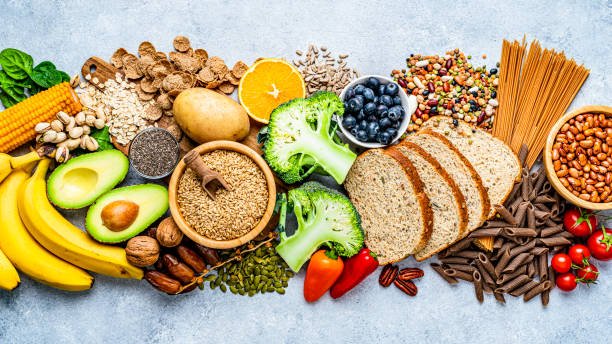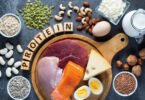Grains and carbohydrates
play a vital role in the formulation of balanced and nutritious dog food. While dogs are primarily carnivores, their diets can benefit from the energy and essential nutrients provided by grains. In this exploration of grains and carbohydrates in dog food, we delve into the significance of these ingredients, common sources, their role in canine nutrition, and considerations for choosing the right balance.
The Significance of Grains and Carbohydrates
1. Energy Source:
- Carbohydrates are a primary source of energy for dogs. While they have evolved as carnivores, dogs have adapted to utilize carbohydrates effectively in their diets. Grains, as a carbohydrate source, provide readily available energy for various physiological functions, including physical activity and metabolic processes.
2. Digestive Health:
- Carbohydrates, especially those high in fiber, contribute to digestive health in dogs. Fiber helps regulate bowel movements, prevent constipation, and supports a healthy gut microbiome. Adequate fiber content in dog food aids in maintaining overall gastrointestinal well-being.
3. Nutrient Absorption:
- Grains contribute essential nutrients such as vitamins, minerals, and antioxidants to a dog’s diet. These nutrients work in conjunction with other dietary components to ensure optimal health, including bone development, immune function, and overall vitality.
4. Weight Management:
- Properly formulated dog foods with the right balance of grains and carbohydrates can assist in weight management. Complex carbohydrates provide a sustained release of energy, helping to keep dogs feeling satisfied and reducing the likelihood of overeating.
Common Sources of Grains in Dog Food
1. Brown Rice:
- Brown rice is a whole grain that provides carbohydrates, fiber, and essential nutrients. It is easily digestible and suitable for dogs with sensitive stomachs. Brown rice can be found in many commercial dog foods, contributing to the overall nutritional profile.
2. Oats:
- Oats are a good source of complex carbohydrates and fiber. They offer sustained energy and contribute to digestive health. Oatmeal is often included in dog food formulations, providing a wholesome and easily digestible option.
3. Quinoa:
- Quinoa is a pseudo-grain that is gluten-free and rich in protein, fiber, and various vitamins and minerals. It is considered a nutritious alternative to traditional grains and is suitable for dogs with grain sensitivities.
4. Barley:
- Barley is a whole grain that provides carbohydrates, fiber, and some essential nutrients. It is often included in dog food as a source of energy and as a fiber-rich ingredient that supports digestive health.
Considerations for Choosing Grains and Carbohydrates in Dog Food
1. Quality of Ingredients:
- Opt for dog foods that use high-quality grains and carbohydrates. Whole grains, as opposed to refined grains, retain more of their natural nutrients and fiber. The inclusion of whole, unprocessed grains contributes to the overall nutritional value of the food.
2. Digestibility:
- Consider the digestibility of grains for your specific dog. While most dogs can digest grains well, some individuals may have sensitivities or allergies. In such cases, alternative carbohydrate sources or grain-free options may be explored under the guidance of a veterinarian.
3. Individual Dietary Needs:
- Dogs have varied dietary needs based on factors such as age, size, breed, and activity level. Choose a dog food formula that aligns with your dog’s specific requirements. Puppy formulas, adult maintenance diets, and senior formulations may have different carbohydrate compositions to cater to distinct life stages.
4. Gluten Sensitivity:
- While true gluten allergies are rare in dogs, some may have sensitivities. If you suspect gluten sensitivity in your dog, opt for gluten-free grains like quinoa or consider grain-free dog food options. However, consulting with a veterinarian is crucial to ensure nutritional adequacy.
Debates Surrounding Grain-Free Diets
In recent years, grain-free diets for dogs have gained popularity, with some pet owners opting for formulations that exclude traditional grains like wheat, corn, and soy. However, the trend has sparked debates within the veterinary and pet nutrition communities.
Pros of Grain-Free Diets:
- Potential Allergies or Sensitivities: Some dogs may have allergies or sensitivities to certain grains, and a grain-free diet can be beneficial for them.
- Novel Protein Sources: Grain-free diets often incorporate alternative protein sources such as novel meats, which can be suitable for dogs with protein sensitivities.
Cons of Grain-Free Diets:
- Nutritional Imbalances: Grain-free diets may lack the fiber and essential nutrients provided by whole grains, leading to nutritional imbalances.
- Cardiomyopathy Concerns: Some studies have suggested a potential link between grain-free diets and dilated cardiomyopathy (DCM) in dogs, although the exact relationship is still under investigation.



[…] therapeutic benefits of canine companionship have been widely acknowledged in various fields. Dogs are employed as therapy animals […]